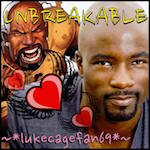|
Bread machines are $15 here at goodwill. I've never seen them without one. I find them incredibly useful. We use it 2 to 3 times a week. It makes the process of kneading dough into a nothing task. We usually bake the bread in the oven, though.
|
|
|
|

|
| # ? May 14, 2024 20:05 |
|
Elysium posted:I dunno, if I'm making a margarita I just cut up a lime and squeeze it by hand, however, if I'm making a bunch of margaritas for a party it's waaaay easier to just throw them in my juicer thing. I'm talking about one of these though. If we're talking about this that does seem kind of pointless. Yeah it's the second type. It can't even fit lemons or anything, just single limes. I don't think I've used it a single time, but I keep it in the drawer for when mom stays over so she can see it when she inevitably rummages through my kitchen 
|
|
|
|
Folly posted:Bread machines are $15 here at goodwill. I've never seen them without one. I have a nice durable stand mixer with a dough hook for that which, as a bonus, can actually do things besides knead bread
|
|
|
|
ate all the Oreos posted:I have a nice durable stand mixer with a dough hook for that which, as a bonus, can actually do things besides knead bread Don't knock it 'til you try it. It does a better job kneading than the mixer and the timer is easily the most undersold feature it has. But still, it's never gonna be worth $235.
|
|
|
|
Folly posted:Don't knock it 'til you try it. It does a better job kneading than the mixer and the timer is easily the most undersold feature it has. Yeah, my parents had one that was probably $50 and the timer was pretty swell. You could prep up a loaf in the evening and set the timer so the bread was baked and ready right as you were waking up  Maybe not worth the dedicated appliance, and certainly not worth $325 lol
|
|
|
|
What if, get this, what if your bread maker was wifi-required to download the latest firmware updates for your sealed proprietary bread dough packets? I call it, "Jui- Breadero."
|
|
|
|
I got one of those lime / lemon presser last summer. Works great when you want to make lemonade and it's super easy to clean. It was ten bucks. Fits my needs.
|
|
|
|
Holy crap this thread has the worst ADD. Really, we are going to talk about personal lime juicing habits for 2 pages? For the $100k being rich debate, you guys are waaaay off. $500k a year is just a normal household guys, they are just like everyone else! https://www.nytimes.com/2017/09/08/opinion/sunday/what-the-rich-wont-tell-you.html#story-continues-1 quote:Over lunch in a downtown restaurant, Beatrice, a New Yorker in her late 30s, told me about two decisions she and her husband were considering. They were thinking about where to buy a second home and whether their young children should go to private school. Then she made a confession: She took the price tags off her clothes so that her nanny would not see them. “I take the label off our six-dollar bread,” she said.
|
|
|
|
Six dollar bread? Good heavens!
|
|
|
|
Good Parmesan posted:Six dollar bread? Good heavens! Lol no kidding, it's like they took a wild guess about what to say to the normals to show how down to earth they are.
|
|
|
|
Now I need to see what I paid for a loaf of bread last. If they were telling me they paid $100 for a case of beer, I would know they are rich!
|
|
|
|
If they really felt bad about the wealth they'd give it away. Instead they just feel bad about being judged for not sharing, which I guess is resolved by hiding how much you're not sharing Mini-BWM: I accidentally left my extra bread in the pantry instead of putting it in the freezer, and I had to throw it out because of mold 
|
|
|
|
Droo posted:Lol no kidding, it's like they took a wild guess about what to say to the normals to show how down to earth they are. 
|
|
|
|
Where do you even find $6 bread?
|
|
|
|
Whole Foods, Trader Joes, any gourmet food store. Hell, even some of the organic supermarket brands can edge that high I once saw an $11 baguette
|
|
|
|
As far as derails go, bread and lime juice is pretty tame and I applaud us for our restraint.Not a Children posted:Whole Foods, Trader Joes, any gourmet food store. Hell, even some of the organic supermarket brands can edge that high
|
|
|
|
Cast_No_Shadow posted:Where do you even find $6 bread? Well, after you take out the NYC cost of living adjustment, it's really only $4.50 or so.
|
|
|
Cast_No_Shadow posted:Where do you even find $6 bread? Good bakery might have 5-6 dollar specialty loaves.
|
|
|
|
|
Cast_No_Shadow posted:Where do you even find $6 bread? Any grocery store? Any of the ones that sell Dave's Kickass Bread or poo poo like Ezekiel can easily hit the $5-$7 range.
|
|
|
|
Subjunctive posted:I have one of those via a gift and it works better than I expected. Gets out more juice than by hand with less mess, gives less pulp than a reamer, easy to shove in a drawer or the top drawer of the dishwasher. TBH I reach for it more often than the one I have like your first example, unless I'm doing oranges. New startup pitch for you: Lymr. Cold-squeezed lime pulp packages, to be pressed for a variety of uses in a proprietary Limr press, which automatically orders more Limr packages when you're out through the subscription Lymr Tymr service.
|
|
|
|
And here I thought I was the only person pushing bread machines in this thread. Hot drat, you're right though. COLI has bread in the $2 range in the cheap areas. (Homemade loaves are like $0.50, regardless of whether you use the bread machine or the mixer.)
|
|
|
|
Wow, I guess America just has a lot of expensive bread?
|
|
|
|
We have alot of gluten free people and low carb people who are willing to pay a premium to continue having peanut butter and jelly sandwiches. I'm typing this with a straight face.
|
|
|
|
So how much do you know about the Bread Wars?
|
|
|
|
Droo posted:Lol no kidding, it's like they took a wild guess about what to say to the normals to show how down to earth they are. You're misreading that. Little miss well-off is talking about $6 bread because she knows how crazy expensive it is.
|
|
|
|
Nail Rat posted:So how much do you know about the Bread Wars?
|
|
|
|
Is this a jealousy thread or what? Those people can probably afford $60 bread, whatever. That article didn't even contain any BWM.
|
|
|
|
Nail Rat posted:So how much do you know about the Bread Wars? Oh boy, I'm just so tired of all these bread wars.
|
|
|
|
I just realized that I deserve the guillotine because I pay $3.50 a loaf. What kind of lovely cheap bread are you guys buying?
|
|
|
|
https://www.youtube.com/watch?v=rWOZKeOauNI
|
|
|
|
Twerk from Home posted:I just realized that I deserve the guillotine because I pay $3.50 a loaf. What kind of lovely cheap bread are you guys buying? I buy $4 bread... but only when it's buy one get one free.
|
|
|
|
Hoodwinker posted:In the past we were unleavened, but the yeast came and we rose up. Nope. I'm not letting this go unrewarded. This was funny Hoodwinker and you are cool in my book.
|
|
|
|
Twerk from Home posted:I just realized that I deserve the guillotine because I pay $3.50 a loaf. What kind of lovely cheap bread are you guys buying? Seems about right. Though sometimes when I'm having a BBQ I'll buy just the dirt cheapest hot dog and hamburger buns which are usually like $1.50 a pack. But those all taste like sugar and I hate them and can only stand it when I've had at least 4 beers.
|
|
|
|
potatoducks posted:Is this a jealousy thread or what? Those people can probably afford $60 bread, whatever. That article didn't even contain any BWM. this thread is like 30% actual BWM, 30% "wow look at this guy spending his disposable income on something i wouldn't buy", and 30% jealousy posting from people who think $100k is a high salary. the last 10% is derails and mental illness posting
|
|
|
|
100k is a high salary. This isn't jealousy posting, I make more than that. I just acknowledge that it's way more than the median income, and that any and all financial woes are my own doing.
|
|
|
|
FrozenVent posted:100k is a high salary. This isn't jealousy posting, I make more than that. I just acknowledge that it's way more than the median income, and that any and all financial woes are my own doing. You had to go and do it.
|
|
|
|
Someone post a bird!
|
|
|
|
too late, gas the thread
|
|
|
|
Please. Just talk about bread.
|
|
|
|

|
| # ? May 14, 2024 20:05 |
|
Moneyball posted:Please. Just talk about bread. I really like sourdough and I'm sad I can't get it very easily where now I live in Canada! 
|
|
|





































